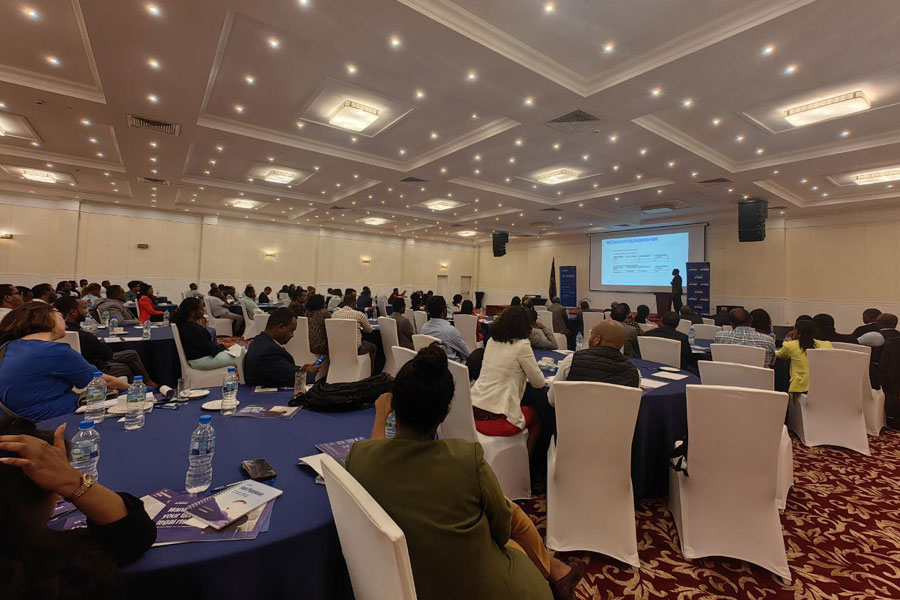
Sep 23 , 2023
By Pinelopi Koujianou Goldberg
Seeing many prominent economists decry the Trump Administration’s tariffs as welfare-reducing protectionism has been puzzling, while approving of the Biden Administration’s even more drastic steps to reshore, friend-shore, and decouple from China.
In a March 2018 Chicago Booth poll of economists, 100pc of respondents opposed new US tariffs; but then a largely overlapping set of respondents were sceptical of global supply chains when asked in January 2022. Only two respondents (with me being one of them) disagreed that a reliance on foreign inputs had made US industries vulnerable to disruptions. One exception to this broader pattern is Dani Rodrik, who argued in a recent commentary that the ramifications of geopolitics are much more severe than renewed protectionism.
He makes an important point; still, one must remember that protectionism was a major catalyst for today’s escalating geopolitical tensions.
The Trump tariffs both reversed a long-term trend toward trade liberalisation and imposed real costs on the US economy by raising prices for American consumers and firms using imported intermediate inputs from China. But Trump’s policies had little impact on global trade overall. While trade between the United States and China declined, as expected, many other countries’ exports – both to the US and to the rest of the world – increased. Trade flows were reallocated, not reduced.
But the belief in the benefits of international trade took a hit as more people regarded it as a zero-sum game.
The Trump Administration pushed the narrative that many of America’s longstanding economic problems were due to trade with China. Inequality in the US had risen sharply, and younger generations were not doing as well as their parents. As if that was not bad enough, Chinese children did seem to be doing better than their parents. Indeed, there had to be a connection between the two. If China was doing so well, America must be falling behind.
Initially, many criticised this narrative as populist pandering. But it gradually gained traction, and when COVID-19 struck, arguments in favour of protectionism and against China went mainstream. Suddenly, everyone agreed that the pandemic-related supply-chain problems resulted from international trade. Never mind that many of the bottlenecks originated domestically and had nothing to do with global supply chains; or that without imported masks from China, shortages of personal protective equipment would have been worse; or that, despite COVID-19 being the biggest global shock since World War II, the world economy proved quite resilient.
The narrative was shifting toward blaming international trade, and particularly trade with China, for every problem in the modern economy.
Then came Russia’s full-scale invasion of Ukraine – the final straw. Though the aggressor was Russia, not China, it was now all too easy to imagine what would happen to the global economy if China invaded Taiwan. Concerns about geopolitical risks and national security came to the fore, lending momentum to calls not for protectionism but for a broader economic decoupling from China. Again, blaming the Russian invasion for ushering in a new cold war is easy.
But would we be where we are without the resurgent protectionism and calls for supply-chain resilience in recent years?
By undermining the belief in international cooperation and pushing the trade narrative as a zero-sum game, those policies and strategic objectives created some of the preconditions for today’s economic warfare. Whereas trade was presented as a zero-sum game in 2015-16, when Trump was elected, now national welfare is being framed in these terms. The issue is no longer just about tariffs and trade. Those are relevant only to the extent that they can be used to stop China from developing its technological capabilities.
The primary concerns now, we are told, are “de-risking” and national security, rather than America’s desire to maintain economic dominance. But such justifications are problematic.
Consider de-risking. It sounds prudent, but is it really about China?
Global production of the most advanced semiconductors is concentrated within a single Taiwanese company (TSMC), which certainly does imply a high risk of disruption should the company suffer some shock. But such a shock need not come from a Chinese invasion; it could also be a health crisis, a natural disaster, or even personnel issues. The root problem is not China, but high market concentration. The same risk would still be salient if the company were US-based.
While worrying about optimal diversification and de-risking makes sense, casting everything in geopolitical terms does not. When Trump recently vowed to impose massive new tariffs if re-elected, the international community rushed to condemn such policies. But tariffs matter less now, because the damage has already been done.
We live in a new era. Drawing on work by economic historians, I noted eerie parallels between the period leading up to World War II and recent developments in US trade and foreign policy. Protectionism is a problem, not just because of its impact on trade, but also on international relations and geopolitics.
PUBLISHED ON
Sep 23,2023 [ VOL
24 , NO
1221]


Commentaries | Sep 10,2023

Fortune News | Apr 26,2019

Obituary | Aug 08,2020

Fortune News | Oct 21,2023

Fortune News | Dec 21,2019

Exclusive Interviews | Jan 24,2023

Viewpoints | Mar 01,2024

Fortune News | Oct 15,2022

My Opinion | Oct 21,2023

Commentaries | Apr 19,2025

Photo Gallery | 170680 Views | May 06,2019

Photo Gallery | 160914 Views | Apr 26,2019

Photo Gallery | 150565 Views | Oct 06,2021

My Opinion | 136250 Views | Aug 14,2021





Dec 22 , 2024 . By TIZITA SHEWAFERAW
Charged with transforming colossal state-owned enterprises into modern and competitiv...

Aug 18 , 2024 . By AKSAH ITALO
Although predictable Yonas Zerihun's job in the ride-hailing service is not immune to...

Jul 28 , 2024 . By TIZITA SHEWAFERAW
Unhabitual, perhaps too many, Samuel Gebreyohannes, 38, used to occasionally enjoy a couple of beers at breakfast. However, he recently swit...

Jul 13 , 2024 . By AKSAH ITALO
Investors who rely on tractors, trucks, and field vehicles for commuting, transporting commodities, and f...

Oct 4 , 2025
Eyob Tekalegn (PhD) had been in the Governor's chair for only weeks when, on Septembe...

Sep 27 , 2025
Four years into an experiment with “shock therapy” in education, the national moo...

Sep 20 , 2025
Getachew Reda's return to the national stage was always going to stir attention. Once...

Sep 13 , 2025
At its launch in Nairobi two years ago, the Africa Climate Summit was billed as the f...

Oct 5 , 2025 . By NAHOM AYELE
In Meqelle, a name long associated with industrial grit and regional pride is undergo...

Oct 5 , 2025 . By BEZAWIT HULUAGER
The federal government is set to roll out a new "motor vehicle circulation tax" in th...

Oct 5 , 2025 . By NAHOM AYELE
The Bank of Abyssinia is wrestling with the loss of a prime plot of land once leased...

Oct 5 , 2025 . By BEZAWIT HULUAGER
The Customs Commission has introduced new tariffs on a wide range of imported goods i...